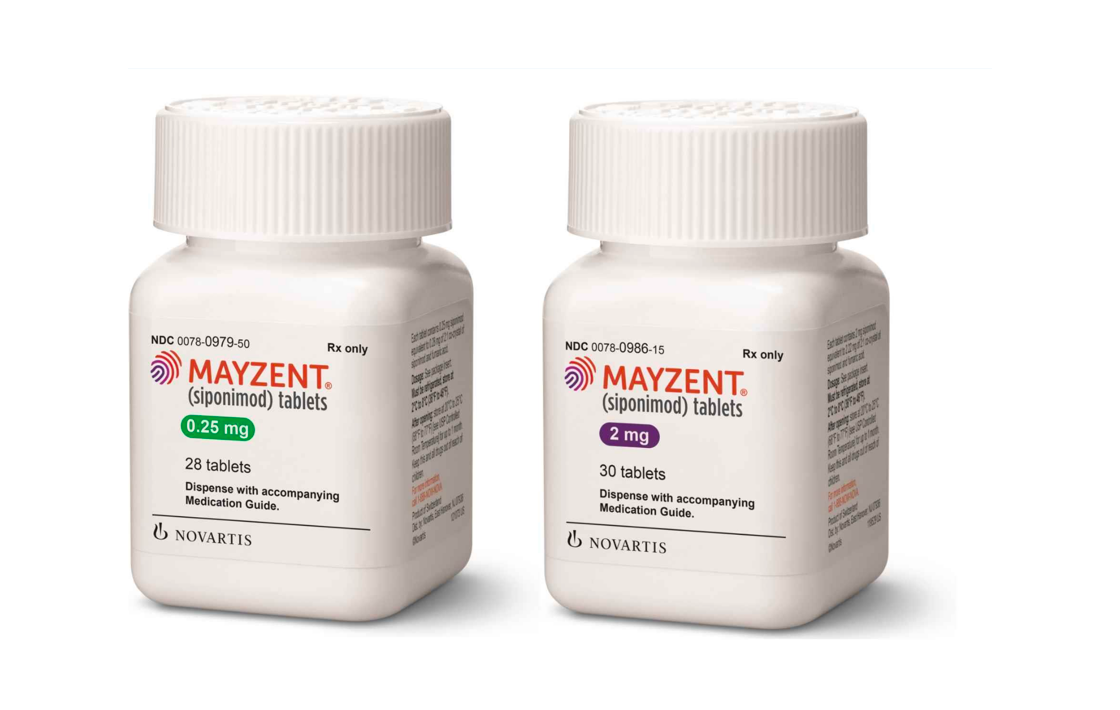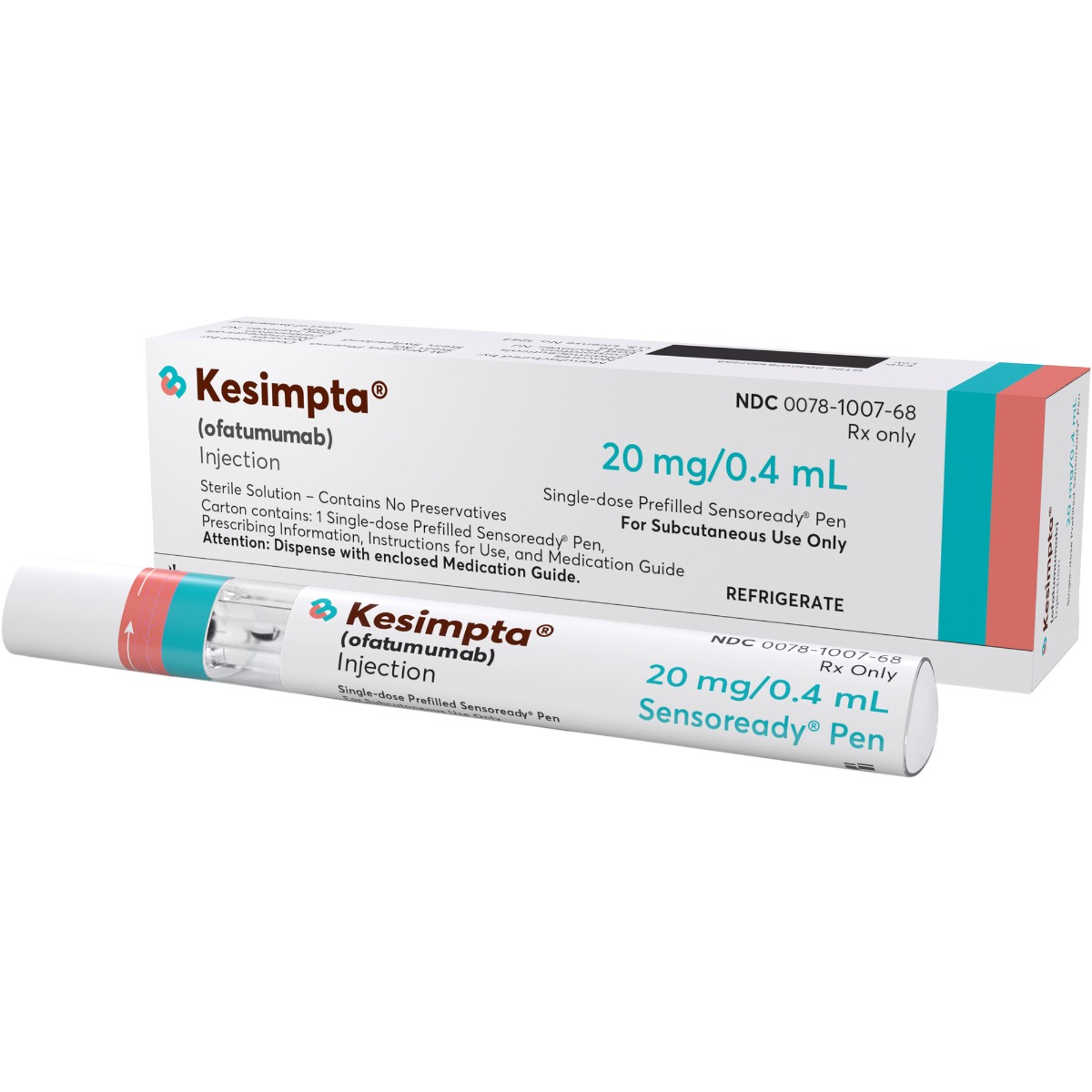Mayzent (Siponimod) vs Kesimpta (ofatumumab)
Mayzent (Siponimod) vs Kesimpta (ofatumumab)
Mayzent (Siponimod) is a sphingosine 1-phosphate receptor modulator approved for the treatment of relapsing forms of multiple sclerosis (MS), including clinically isolated syndrome, relapsing-remitting disease, and active secondary progressive disease. Kesimpta (Ofatumumab) is a CD20-directed cytolytic antibody indicated for the treatment of relapsing forms of multiple sclerosis (MS), including clinically isolated syndrome, relapsing-remitting disease, and active secondary progressive disease, and is administered as a subcutaneous injection. When deciding between Mayzent and Kesimpta, it is important to consider factors such as the mode of administration (oral for Mayzent, injection for Kesimpta), the side effect profile, and any pre-existing conditions that may affect drug choice, as well as consulting with a healthcare provider for a personalized assessment.
Difference between Mayzent and Kesimpta
| Metric | Mayzent (Siponimod) | Kesimpta (ofatumumab) |
|---|---|---|
| Generic name | Siponimod | Ofatumumab |
| Indications | Relapsing forms of multiple sclerosis (MS), including clinically isolated syndrome, relapsing-remitting disease, and active secondary progressive disease in adults | Relapsing forms of multiple sclerosis (MS), including clinically isolated syndrome, relapsing-remitting disease, and active secondary progressive disease in adults |
| Mechanism of action | Sphingosine 1-phosphate receptor modulator | CD20-directed cytolytic antibody |
| Brand names | Mayzent | Kesimpta |
| Administrative route | Oral | Subcutaneous injection |
| Side effects | Headache, hypertension, liver function test increases, bradycardia | Upper respiratory tract infection, headache, injection-related reactions |
| Contraindications | CYP2C9*3/*3 genotype, recent (last 6 months) myocardial infarction, unstable angina, stroke, transient ischemic attack, decompensated heart failure requiring hospitalization, Class III/IV heart failure, presence of Mobitz type II second-degree or third-degree atrioventricular block or sick sinus syndrome, unless the patient has a functioning pacemaker | Hepatitis B virus infection, active infection |
| Drug class | Sphingosine 1-phosphate receptor modulator | Monoclonal antibody |
| Manufacturer | Novartis | Novartis |
Efficacy
Mayzent (Siponimod) Efficacy in Multiple Sclerosis
Mayzent (Siponimod) is an oral medication approved by the U.S. Food and Drug Administration (FDA) for the treatment of adults with relapsing forms of multiple sclerosis (MS), including clinically isolated syndrome, relapsing-remitting disease, and active secondary progressive disease. The efficacy of Mayzent was demonstrated in a phase III clinical trial known as EXPAND. This study showed that Mayzent reduced the risk of disability progression, which was sustained for at least three months, compared to placebo. Additionally, Mayzent has been found to decrease the annual relapse rate in individuals with relapsing forms of MS.
Mayzent works by modulating the immune system's response, which is thought to reduce the inflammatory process that contributes to the progression of MS. It selectively binds to sphingosine-1-phosphate (S1P) receptors on the surface of lymphocytes, trapping them in lymph nodes and preventing them from entering the central nervous system where they could cause damage to the myelin sheath that protects nerve fibers.
Kesimpta (Ofatumumab) Efficacy in Multiple Sclerosis
Kesimpta (Ofatumumab) is another medication approved for the treatment of relapsing forms of multiple sclerosis, which includes clinically isolated syndrome, relapsing-remitting disease, and active secondary progressive disease in adults. Ofatumumab is a monoclonal antibody that targets CD20, a protein found on the surface of B cells, which are a type of immune cell implicated in the pathogenesis of MS. Kesimpta has been shown to significantly reduce the annual relapse rate compared to teriflunomide, a commonly prescribed MS medication, in two identical phase III clinical trials known as ASCLEPIOS I and II.
The trials also demonstrated that Kesimpta reduced the number of both new and enlarging T2 lesions and gadolinium-enhancing lesions on MRI scans, which are indicators of disease activity in MS. Furthermore, Kesimpta has shown to delay the time to confirmed disability progression. The subcutaneous administration of Kesimpta once monthly offers a convenient dosing schedule that can be self-administered by patients after initial dosing under the guidance of a healthcare professional.
Regulatory Agency Approvals
Mayzent
-
European Medical Agency (EMA), European Union

-
Food and Drug Administration (FDA), USA

-
Therapeutic Goods Administration (TGA), Australia

Kesimpta
-
European Medical Agency (EMA), European Union

-
Food and Drug Administration (FDA), USA

Access Mayzent or Kesimpta today
If Mayzent or Kesimpta are not approved or available in your country (e.g. due to supply issues), you can access them via Everyone.org.
How it works

Make an enquiry
Choose the medicine you want to buy, answer a couple of questions, and upload your prescription to speed things up. We’ll get back to you within 24 hours.


Make an enquiry
Choose the medicine you want to buy, answer a couple of questions, and upload your prescription to speed things up. We’ll get back to you within 24 hours.


Breeze through the paperwork
We'll guide you through the required documents for importing unapproved medicine, ensuring you have all the necessary information.


Get a personalized quote
We’ll prepare a quote for you, including medicine costs and any shipping, administrative, or import fees that may apply.


Receive your medicine
Accept the quote and we’ll handle the rest - sourcing and safely delivering your medicine.

Some text on this page has been automatically generated. Speak to your physician before you start a new treatment or medication.
Let's talk
If you have any questions, call us or send us a message through WhatsApp or email:
Contact us




